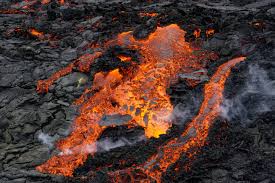By: Vivian Tang
In the pastfew years, Iceland’s volcanoes have erupted more frequently than usual. On Tuesday, July 30th, the Icelandic Meteorological Office issued a warning, bracing the country for the 8th eruption since March 2021 in the next few days.
Matthew J. Roberts is the managing director of the Icelandic Meteorological Office.
“We’re going through a volcanic crisis. This is perhaps the most intense period of volcanic activity affecting an urban environment at the moment,” Roberts said.
According to Roberts, volcanoes usually rest for centuries, and this occurrence is very unprecedented and unexpected.
“To think that this would happen in my human lifetime, it is remarkable,” Roberts said.
On average, Iceland experiences a volcano every 3 to 4 years. But at the moment, Iceland is experiencing one per month.
Although this is very rare, it is also normal.
Christopher Kilburn is a professor of volcanology at the University College London.
“It’s not unusual to have an eruption where it’s now happening. It’s just been a long time since it last happened. But in the grand scheme of the evolution of the country, it’s within normal behavior,” Kilburn said.
Froma broader perspective, there’s no evidence volcanic activity is increasing globally.
Ed Venzke manages the Smithsonian Institution’s Global Volcanism Program database.
“Iceland has eruptions. It’s a volcanic area. One gets active, one shuts down, another picks up, there are some lava flows, fire fountains, there’s explosions, and it just keeps doing that,” Venzke said.
People cannot control volcanic eruptions, so the most that can be done is to try and avoid them.











